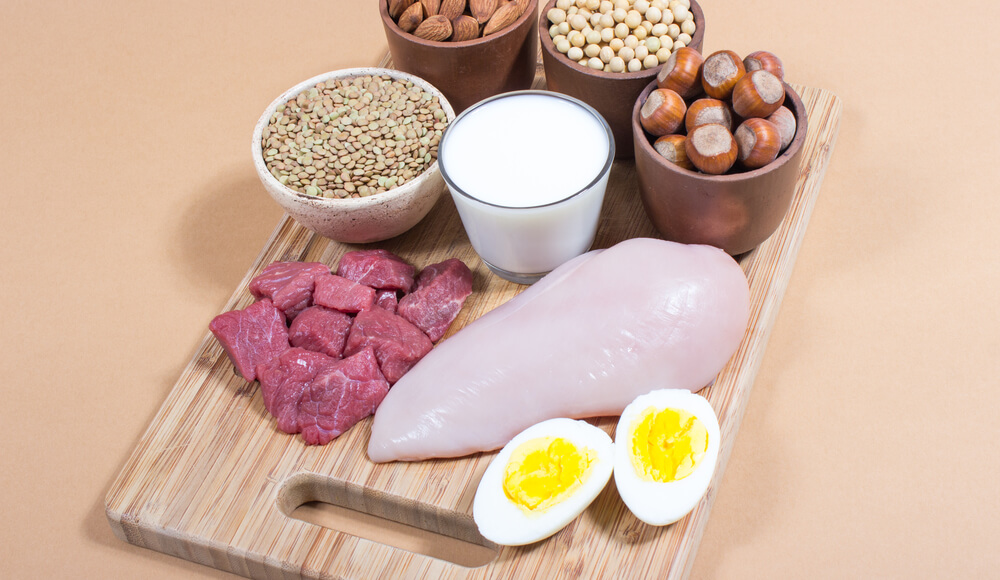
With so many options to pick from, it can be hard to choose which protein will help fuel your gains in the gym. Here’s your guide to making the best choice for your dietary needs.
Protein is the necessary component to moving forward with your workout regimen. If you want to grow those muscles, tone what you already have, keep fit and healthy, you need to fuel your body correctly. That means you have to find the right proteins to provide your muscles with everything they need to grow. A protein source is more than just about a certain amount of grams. You’d be surprised to learn what other benefits you can gain from foods that are high protein and considered the best muscle building foods.
If you’re looking for the best proteins to fill your diet to stay fit and healthy, we’ve got the list right here. Check out this guide that profiles 11 awesome proteins and their benefits with all the nutritional data you could want (percentage values shown below are based on a standard 2,000 calorie per day diet).
11 Best Protein Foods
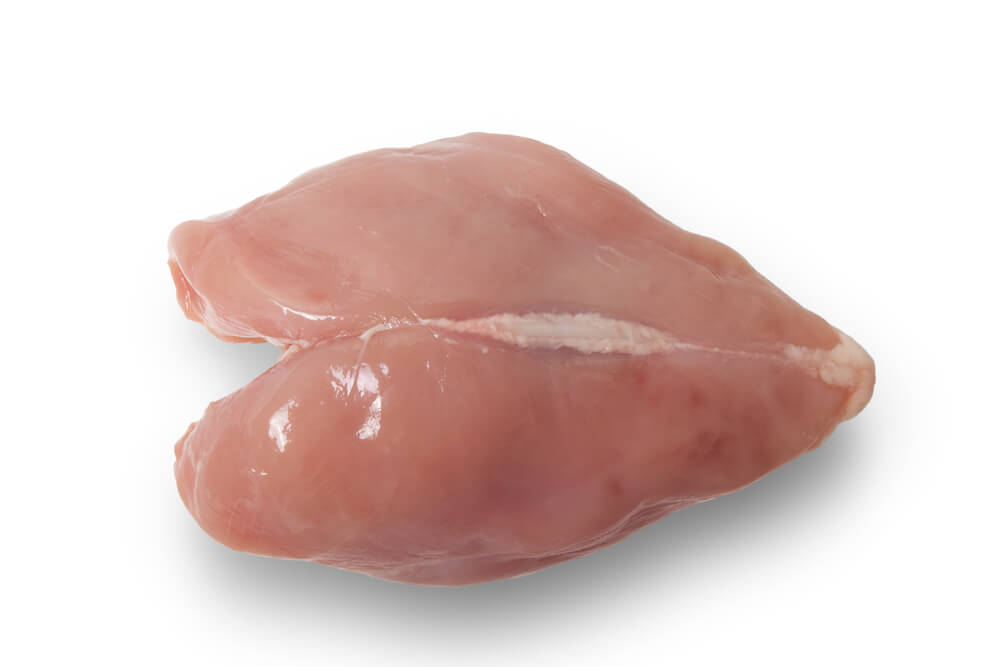
#1 Chicken
Amount per 100 grams
Calories: 239
Total Fat: 14 grams
Potassium: 82 milligrams
Dietary Fiber: 0 grams
Protein: 27grams
Notable Nutrients:
Vitamin B-6: 20%
Iron: 7%
Magnesium: 5%
Vitamin B-12: 5%
Chicken provides an easy to cook, cheap protein option that can be made in a bunch of ways. It also offers an impressive 20% of your daily intake value for vitamin B-6 and there are a ton of benifits of vitamin b6.
When it comes to preparing, grilling chicken is arguably your best option as it is an excellent way to control the amount of olive oil you use. It also ensures you’re able to keep the meat you consume lean. Obviously, fried chicken is going to be less healthy, so you will want to stay away from that, as you want to keep things light.
Chicken is also often paired with heavy comfort foods, as it goes great with pasta and mashed potatoes. But, don’t forget that those really bump up the calorie count. Keep the dish and the sides as light as possible, but also as nutrient-rich as possible. For example, salads are an excellent way to include your veggies and your fruits. You can also make things like healthy chicken stir fry for some other solid options. Salads are one of the best methods to mesh several food groups into one and if you season your chicken well, you can have one tasty salad and a ton of nutritional benefit.
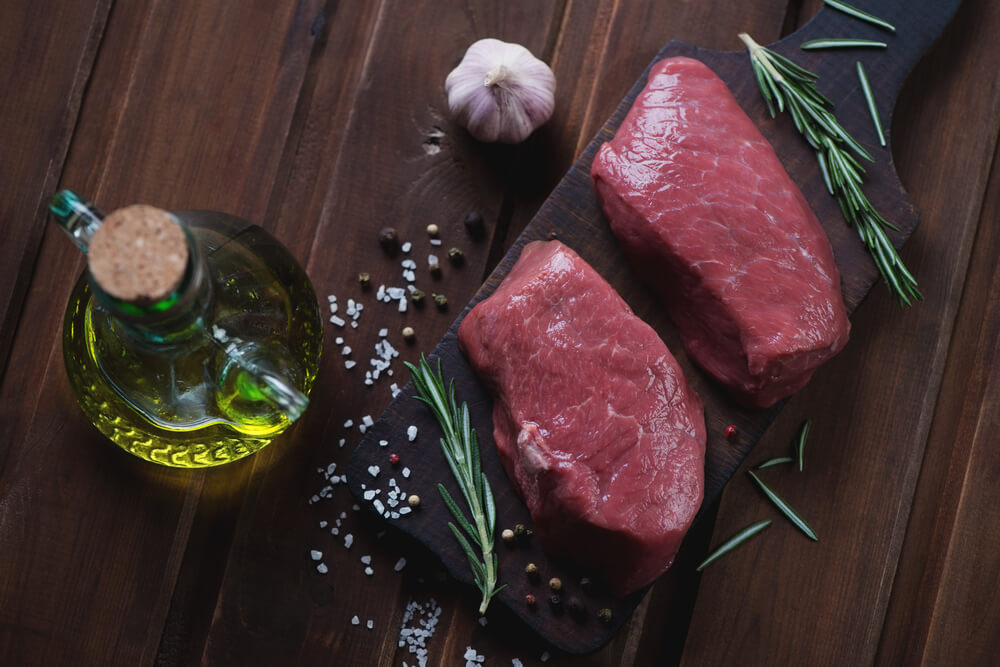
#2 Beef
Amount per 100 grams
Calories: 250
Total Fat: 15 grams
Potassium: 318 milligrams
Protein: 26 grams
Notable Nutrients:
Vitamin B-12: 43%
Vitamin B-6: 20%
Iron: 14%
Magnesium: 5%
Here’s the classic icon for protein – red meat.Before your write if off you might want to check out Is red meat actually good for your heart? Much like chicken, however, beef is often paired with those heavy, high-calorie comfort foods. Needless to say, you want to limit those comfort foods. So, if your sides aren’t providing their fair share of nutritional content, then this star protein won’t fit into your well-balanced meal plans.
Traditionally when someone says steak, you probably picture steak sauce and fries. Of course, that’s a totally fine option for the occasional night out when you’re looking to really go hard on the protein and not worry about anything else. But, if you are looking to maximize the benefits of your meal, consider a Vietnamese-style Steak Sandwich. By adding vegetables with your steak, you’ve got a little jump on the nutrients.
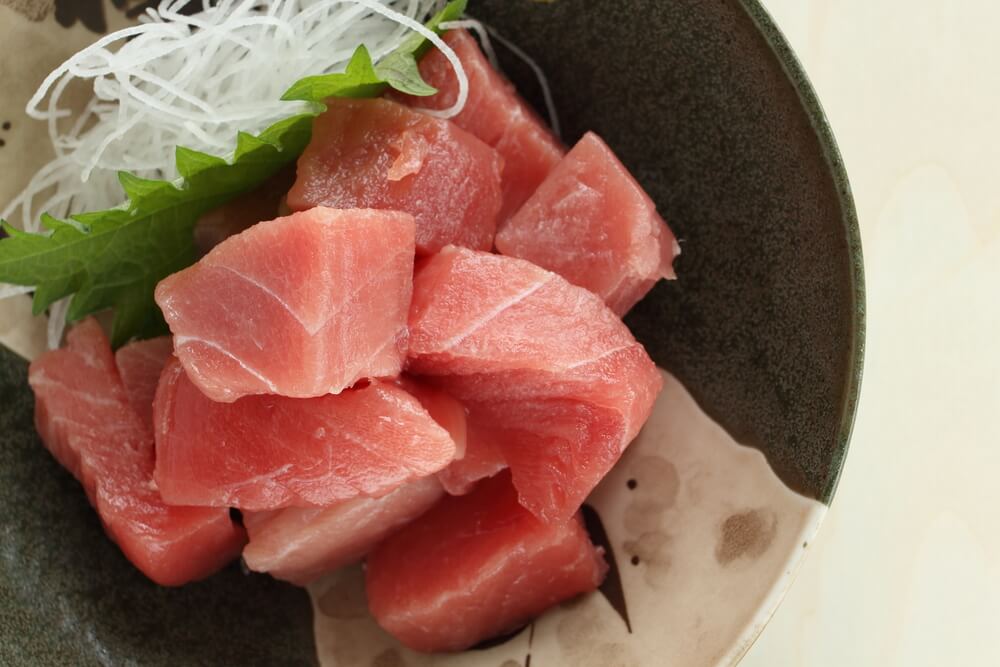
#3 Tuna
Amount per 100 grams
Calories: 184
Total Fat: 6 grams
Potassium: 323 milligrams
Protein: 30 grams
Notable Nutrients:
Vitamin B-12: 181%
Vitamin A: 50%
Vitamin B-6: 25%
Magnesium: 16%
If only every protein choice offered these kinds of stats!
Tuna offers a great combination of low calories and high protein content. Fish is also the leanest of the meats; notice the tuna fat count comes in at only six grams but yields thirty grams of protein – that’s definitely a winning pair. And you may have noticed the whopping 181% of your daily value vitamin B-12. That’s above and beyond what most sources can bring to the table. Does tuna make you lose weight, no but you can see it’s extremely lean source of protein.
And that’s just the highlights of eating tuna. Don’t forget that it also offers a host of nutritional value so you should definitely add it to your list. When it comes to canned tuna, lunch is typically the meal of choice because it doesn’t need to be heated up. It really goes great in the old lunch bag. Just don’t fall into the trap that many others do.
Keep it light. And, keep the mayo out of the picture, if at all possible.

#4 Salmon
Amount per 100 grams
Calories: 208
Total Fat: 13grams
Potassium: 363 milligrams
Protein: 20 grams
Notable Nutrients:
Vitamin B-12: 53%
Vitamin B-6: 30%
Vitamin C: 6%
Magnesium: 6%
What you don’t see above is the great amount of omega-3 fatty acids that salmon provides, which is great for your heart health. Salmon also contains a good amount of essential amino acids and bioactive protein molecules.
There has been a great deal of research done on salmon that proves it has an amazing range of health benefits. But, of course, one of those is protein. Combine all of your health needs into one protein with salmon!
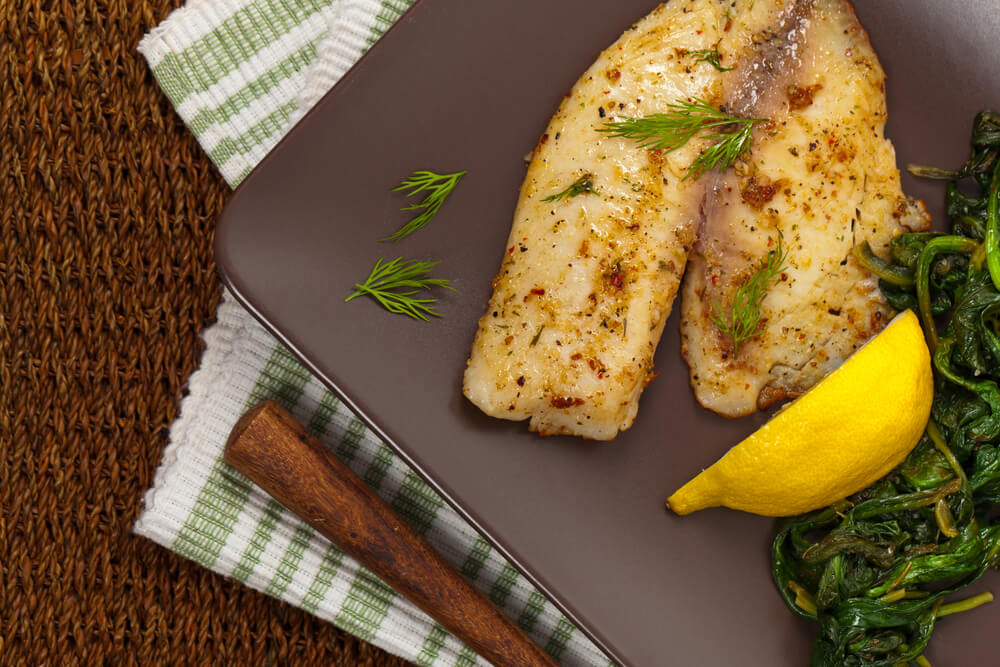
#5 Tilapia
Amount per 100 grams
Calories: 129
Total Fat: 2.6 grams
Potassium: 380 milligrams
Protein: 26 grams
Notable Nutrients:
Vitamin D: 37%
Vitamin B-12: 31%
Magnesium: 8%
Vitamin B-6: 5%
Often overlooked, tilapia is a great fish to add to your protein list as it has low calories and low-fat content. But, it has very high protein and is one of the easiest fish to cook.
If you’re not the best with cooking fish in the pan, bake it in the oven. You can pair it with lemons and other flavors. Be sure to time it so you don’t have to rely too much on guessing whether or not it’s cooked all the way through.
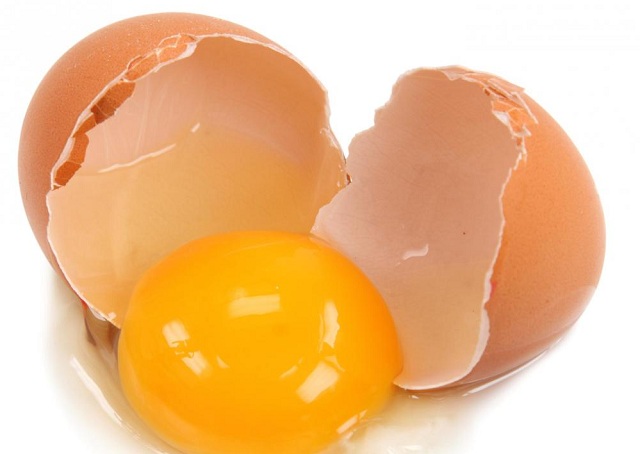
#6 Eggs
Amount per 100 grams
Calories: 155
Total Fat: 11 grams
Potassium: 126 milligrams
Protein: 13 grams
Notable Nutrients:
Vitamin D: 21%
Vitamin B-12: 18%
Vitamin A: 10%
Vitamin B-6: 5%
Here’s a classic breakfast protein that never goes out of style. You can have them many ways, many days, many times and they’ll still provide all that can’t miss protein goodness.
They’re cheap and they provide selenium, vitamins, and minerals. Similar to fish, as mentioned above for salmon, eggs are also a rich source of omega-3 fatty acids. Pack your protein with a range of health benefits when you eat eggs! From loaded scrambled eggs to a skillet soufflé, there are so many options when it comes to cooking with eggs so go ahead and get creative. Just don’t drink them raw—Rocky is an exception, not a rule.
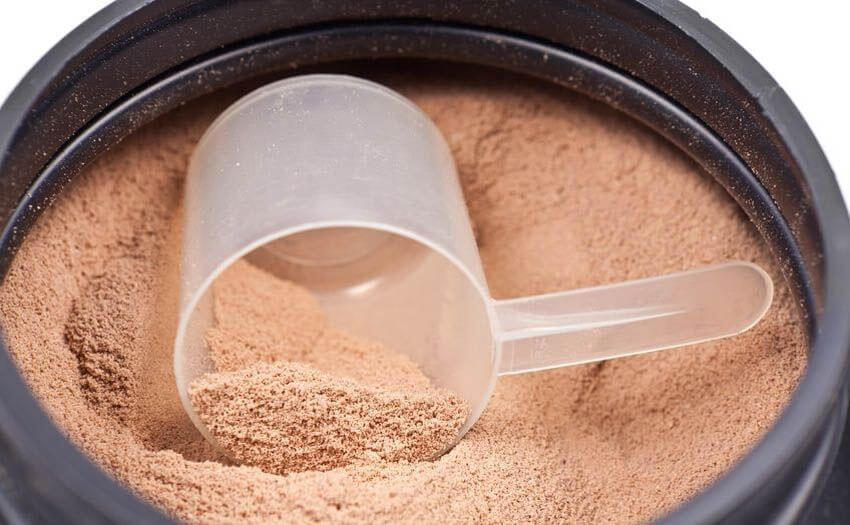
#7 Whey Protein Powder
Amount per 100 grams
Calories: 352
Total Fat: 0 grams
Protein: 70 grams
Notable Nutrients:
Calcium: 33%
When trying to keep fit, it’s important to consider the best way to maximize your muscle growth. Protein powder is a great way to hone in on all that hard work you’ve been putting in at the gym. Also, make sure to research the best tasting protein powder for your taste buds.
When consumed right before or after your training, whey protein powder can provide great muscle strength and growth results. At 70 grams of protein, that’s the highest on this list per 100 grams.
This amazing powder offers protein building blocks, hormones to stimulate muscle growth, leucine to stimulate muscle protein synthesis and fast absorption by the body. There are numerous varieties of protein shakes and recipes to try, but you shouldn’t need to follow a recipe on this. Go ahead and get creative with some fruit, yogurt, ice and milk, and you’ll find the right blend for you.
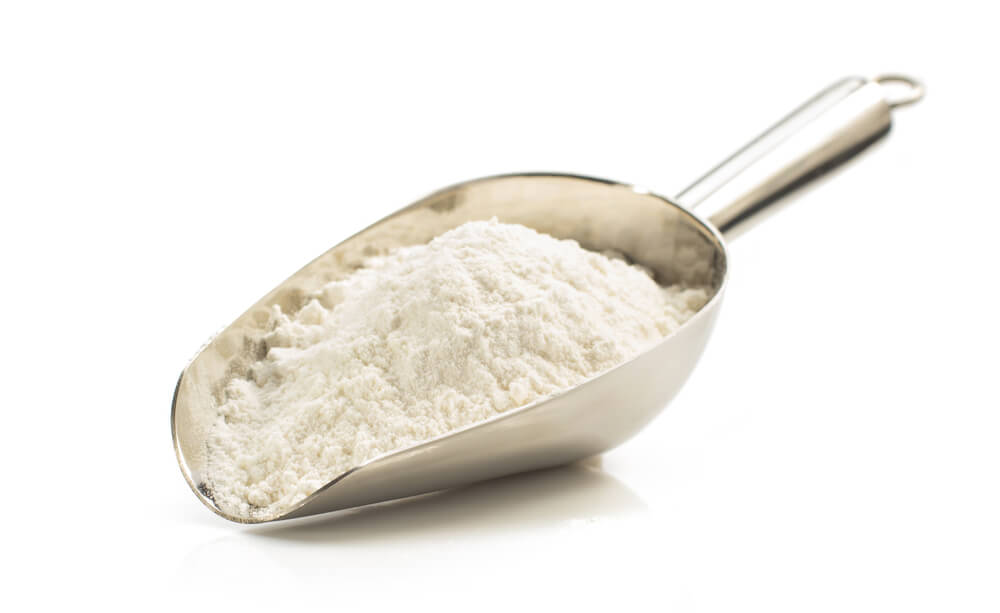
#8 Cricket Flour
Amount per 12 grams
Calories: 55.3
Total Fat: 2.4 grams
Potassium: 121.2 milligrams
Protein: 7.6 grams
Notable Nutrients:
Riboflavin: 23.5%
Vitamin B-12: 16.7%
Zinc: 14%
Niacin: 4.5%
If you haven’t heard, cricket flour is a bit like the aforementioned whey protein powder, except it’s made of crickets! The United Nations Food and Agricultural Organization have been touting it a great deal of late because of its ability to provide an alternate and abundant protein source, as well as because it just might be one of the most environmentally friendly food sources you can find.
For an easy way to have your first taste, you could start small with a pre-made protein bar called Exo. It is proudly made with cricket flour and is also soy, grain, dairy and gluten-free. They have a whopping 10 grams of protein for a small 2.1-ounce bar. That’s impressive, to say the least. Or, if you’re feeling daring, whip up a shake or make some brownies.
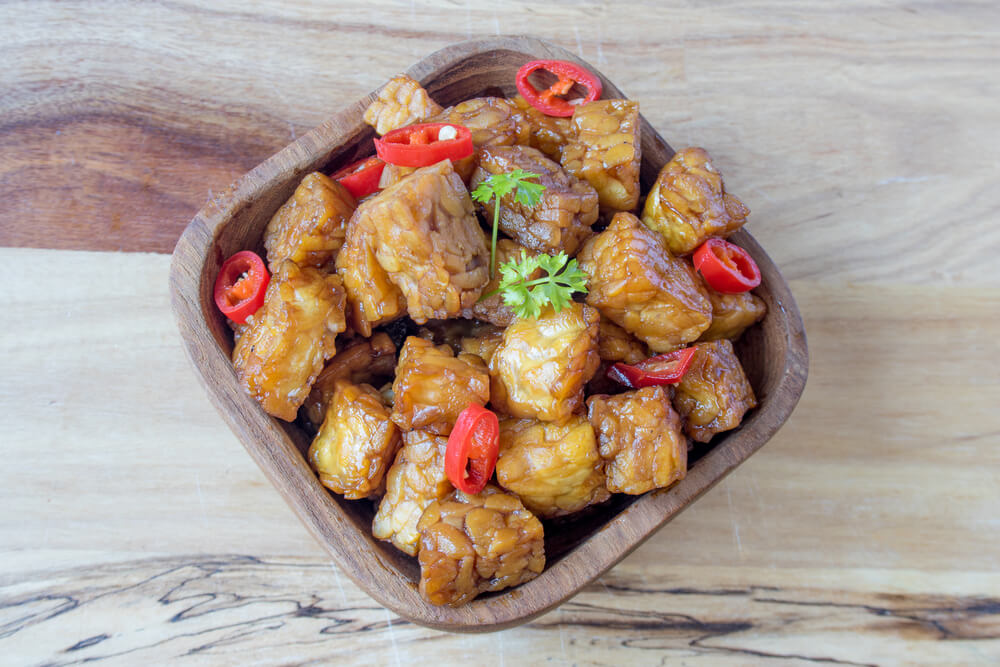
#9 Tempeh
Amount per 100 grams
Calories: 193
Total Fat: 11 grams
Potassium: 412 milligrams
Protein: 19 grams
Notable Nutrients:
Magnesium: 20%
Iron: 15%
Calcium: 11%
Vitamin B-6: 10%
Made from soybeans, tempeh is a fantastic vegetarian protein option. High in manganese, copper and fiber, among other vitamins and minerals, tempeh offers up the protein and much more – especially in the case of fiber.
You’ll find that the vegetarian proteins often provide an exceptional amount of fiber, which is essential to the digestion of this very protein. So if you’re eating steak, you better pair it with a fibrous list of goodies throughout the day, as it provides zero fiber on its own.
As for making meals with tempeh, it pairs well with rice, carrots, greens, mushrooms, and, of course, curry sauces.
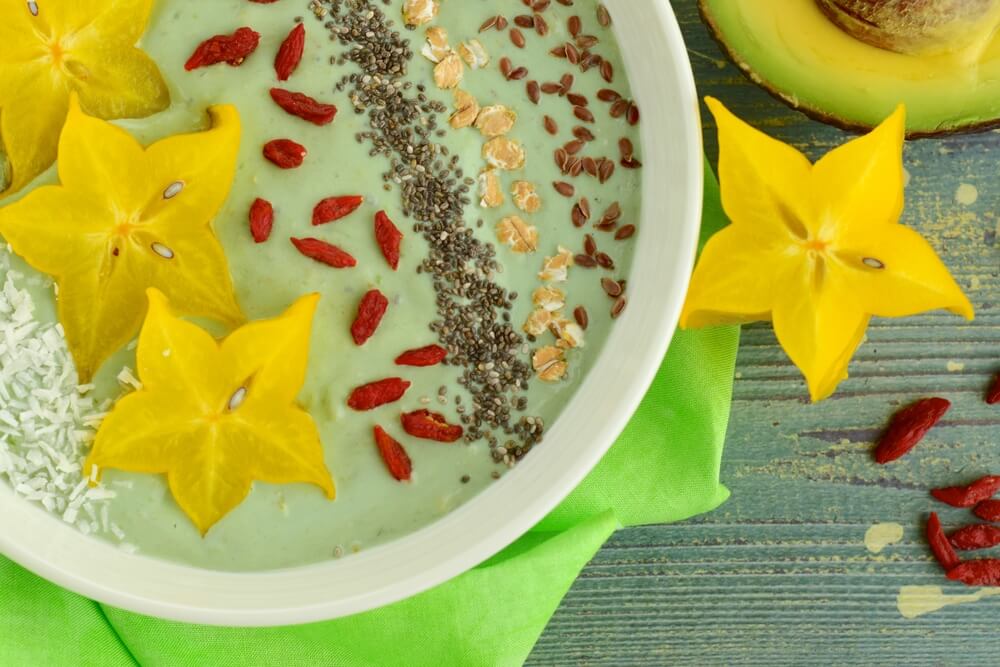
#10 Spirulina
Amount per 100 grams
Calories: 290
Total Fat: 8 grams
Potassium: 1363 milligrams
Protein: 57 grams
Notable Nutrients:
Iron: 158%
Magnesium: 48%
Vitamin B-6: 20%
Vitamin C: 16%
Calcium: 12%
Vitamin A: 11%
Also known as blue-green algae, which naturally grow in oceans and salty lakes, protein makes up about 60 to 70% of spirulina’s dry weight. Many have also promoted the nutritional values spirulina provide, although actual scientific research has yet to offer conclusive evidence on the subject.
Nonetheless, when it comes to protein, spirulina is still a viable player. And, if others are out there reaping the benefits, so should you! It goes great in shakes or baked dishes.
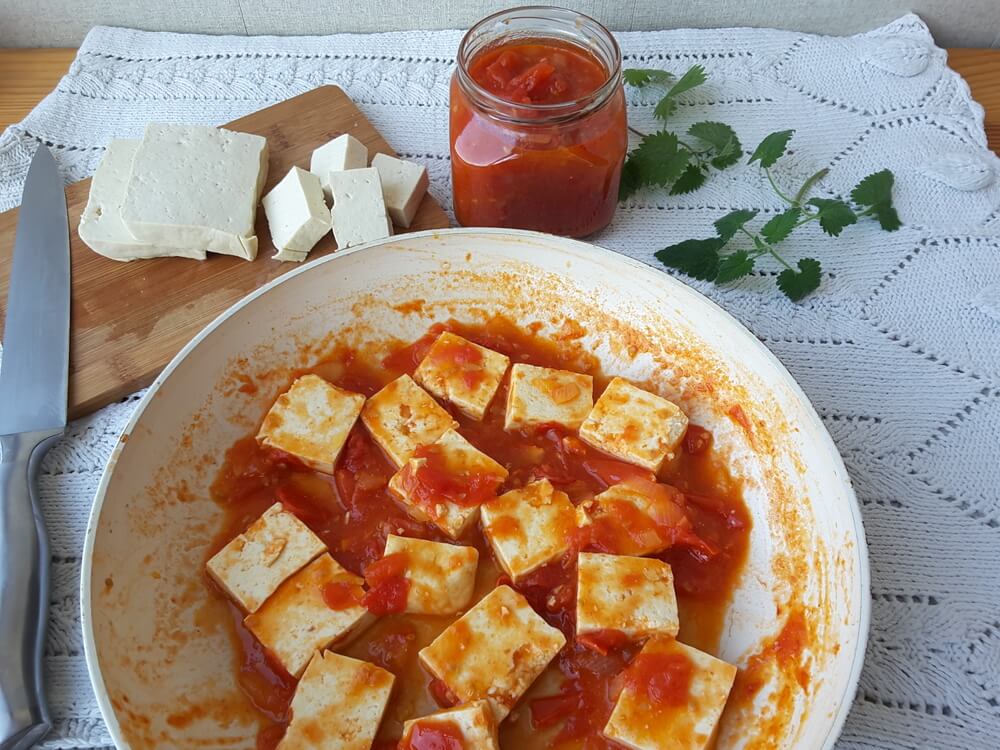
#11 Tofu
Amount per 100 grams
Calories: 76
Total Fat: 4.8 grams
Potassium: 121 milligrams
Protein: 8 grams
Notable Nutrients:
Calcium: 35%
Iron: 30%
Magnesium: 7%
Made from soybean curds, tofu is naturally gluten-free, very low on calories (the lowest on this list), contains zero cholesterol and provides rich amounts of calcium and iron. This vegetarian option is also probably the most common eaten by carnivores because it’s been used for such a long time and proven to be beneficial.
Conclusion
Protein is an essential building block that any health or fitness minded individual can’t afford to skip. Most people think they know their simple meal plans well enough that they don’t realize the shortcomings before it’s too late. Don’t fall into that trap. You should really sit down and judge your diet to make sure you’re getting everything you need. Don’t forget: Your goal is to have a balance and some of the sources on this list of best protein foods to offer a great deal more versatility than many of the more common foods we all eat on a daily basis.
That’s too tough to say. In many ways it all depends on what you prefer and how your body reacts to different sources. Not everyone has a taste for eggs, fish or soybeans. While they all provide unique tastes, they also provide unique benefits. The good news is that you’ve got more than enough to fill up your meal plan with variety and quality. Don’t be one of those people that negatively judge something they haven’t tried before. You’ll never see the benefits if you do. Give them a try and let us know which one you think works out the best!
By Alyssa Bright
Latest posts by Terry M (see all)
- Garage Gyms - Aug 1, 2018
- Kettlebells – Why They Should Be Added To Your Routine. - Jul 24, 2018
- Weight Belts: What Are They Really For? - May 31, 2018











I didn’t see greek yogurt on this list. You can add honey, jelly, chocolate almonds, blueberries, etc to it.
It’s got about 25 grams of protein per cup also.
[…] Source Gymjunkies […]
[…] don’t want to just consume 1,600 calories of protein. Yes, you will get more bang for your buck this way but your body needs other kinds of calories in […]
[…] building muscle, i suggest quality proteins, carbohydrates, and dietary fats such as […]
I’ve been eating boiled eggs after my workout routine. I’ll add these foods into my diet starting from now. Thank you for sharing this.
Your health will always be your top priority. Always eat healthy and live a healthy lifestyle. Eating the right amount of foods rich in amino acids can help you lose weight and build more protein in the body.
[…] for foods like bananas that are full of vitamins and potassium or nuts that provide your body with proteins and nutrients. You may only be doing a cardio session, but you still need […]